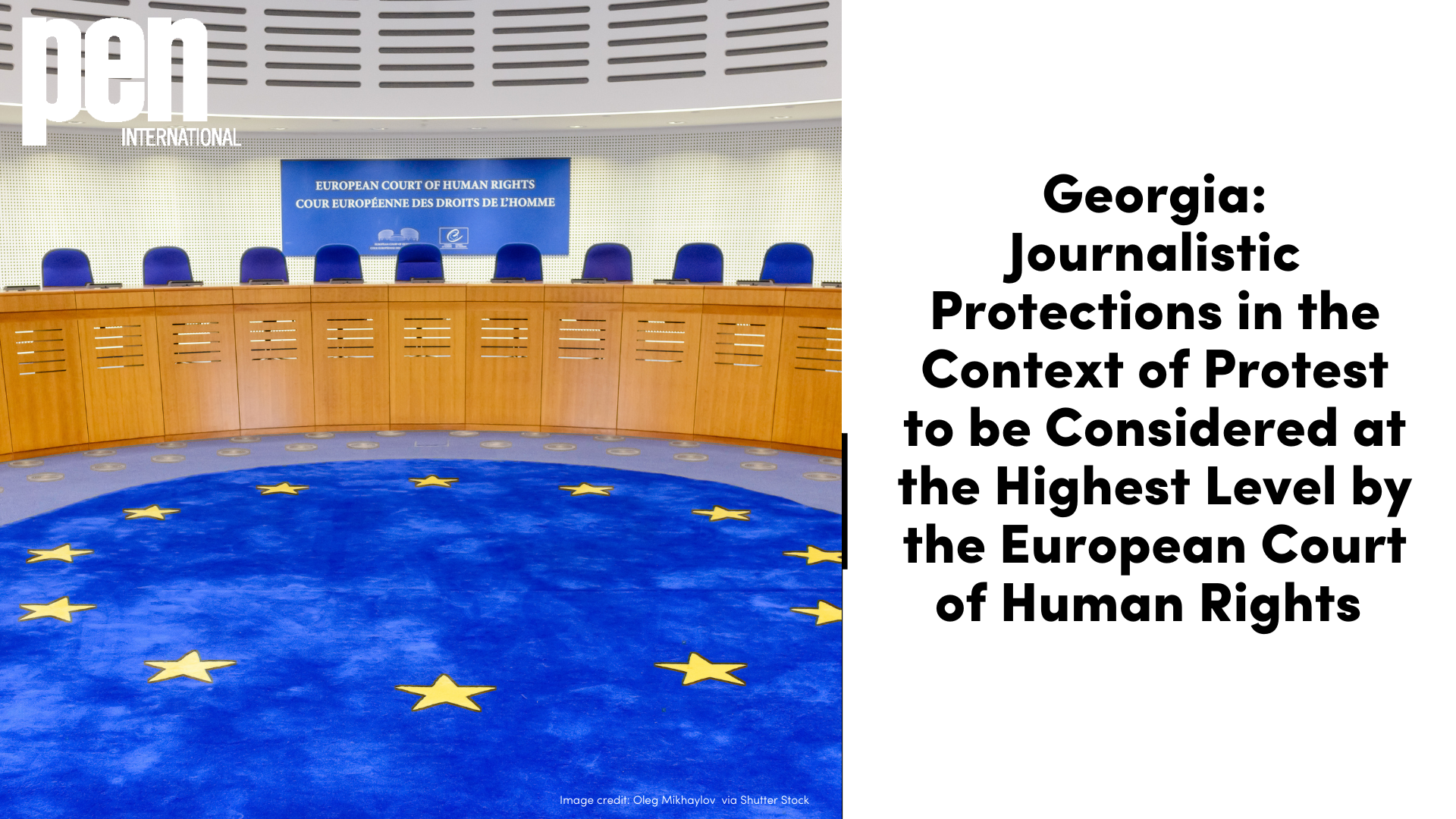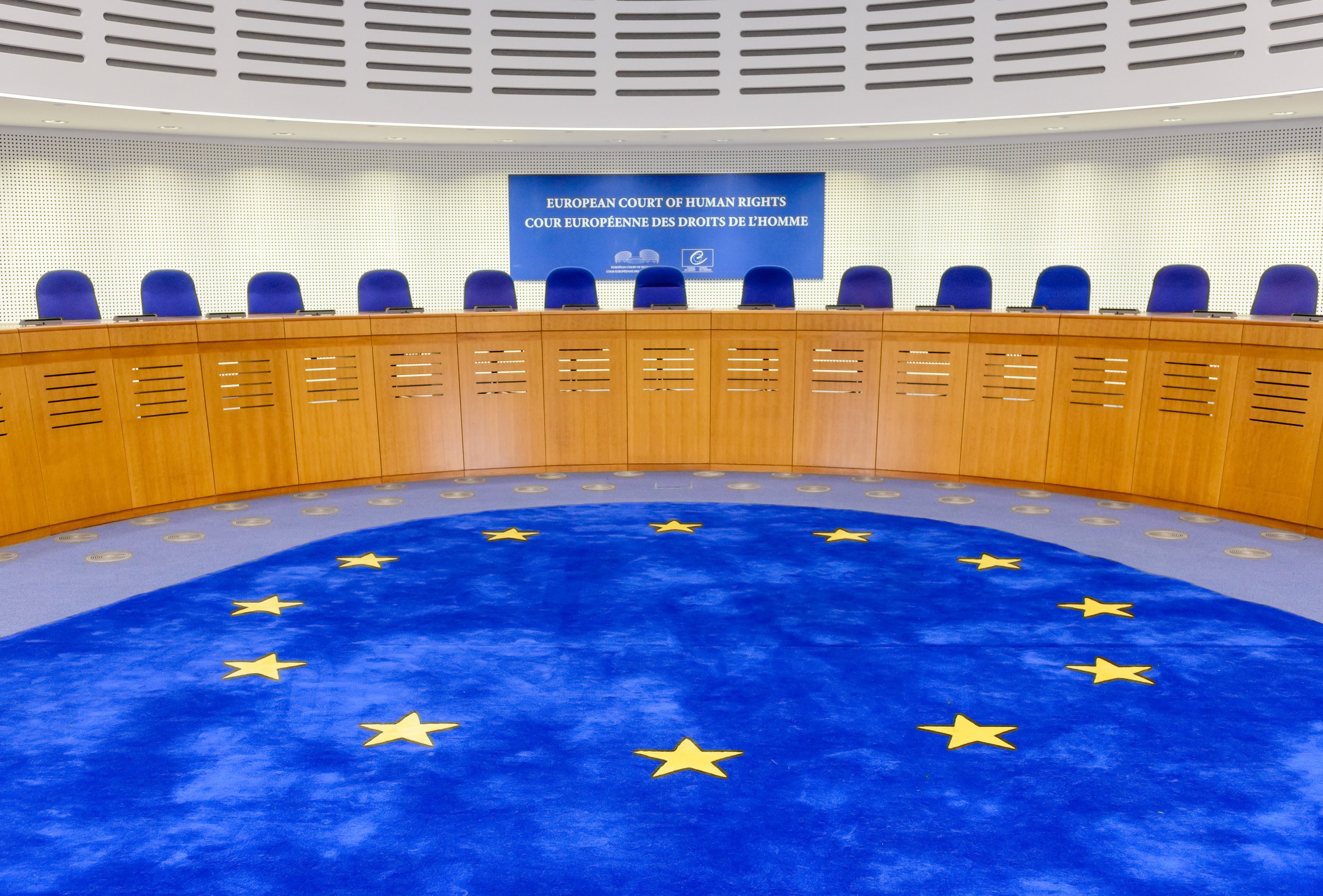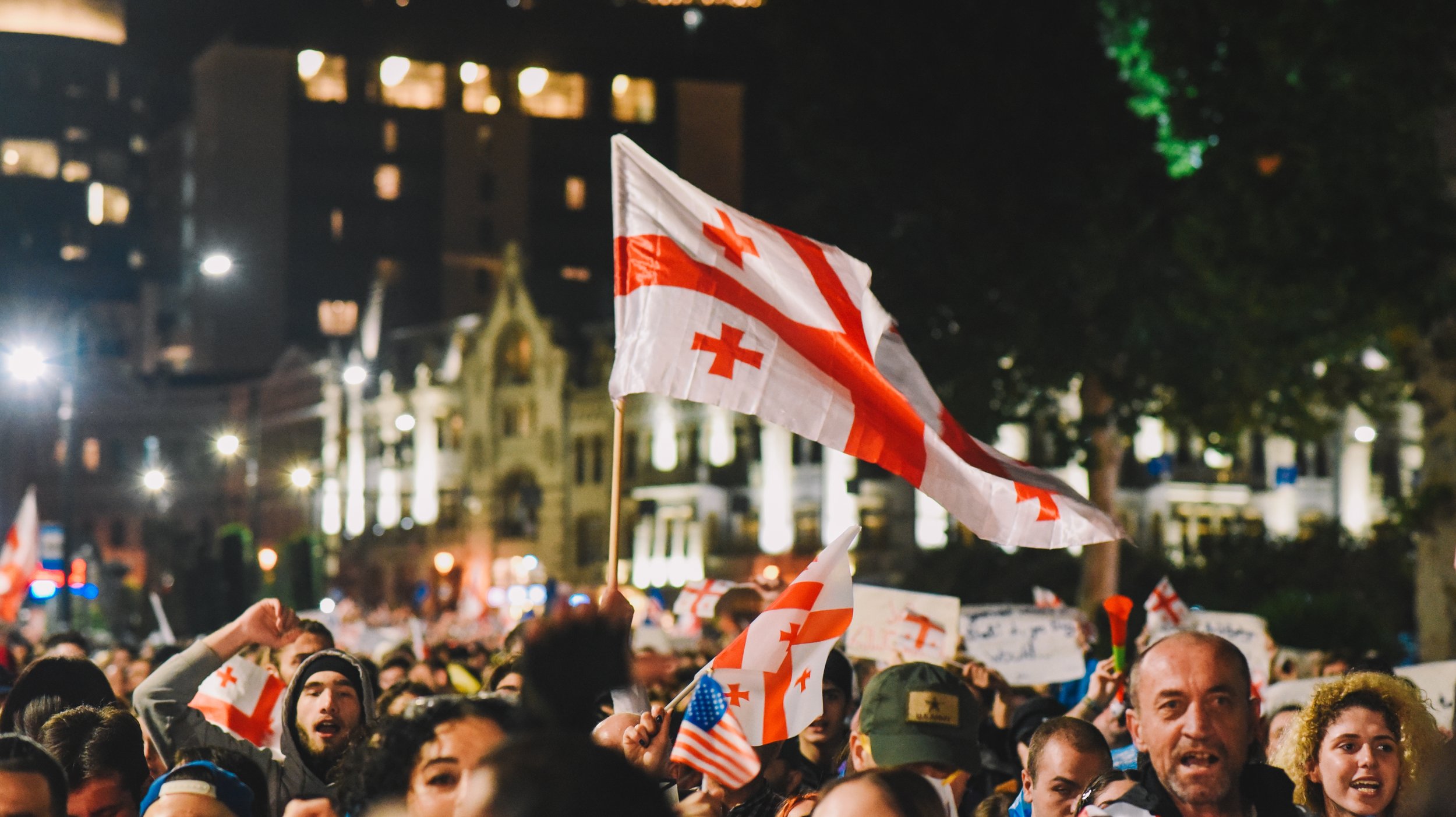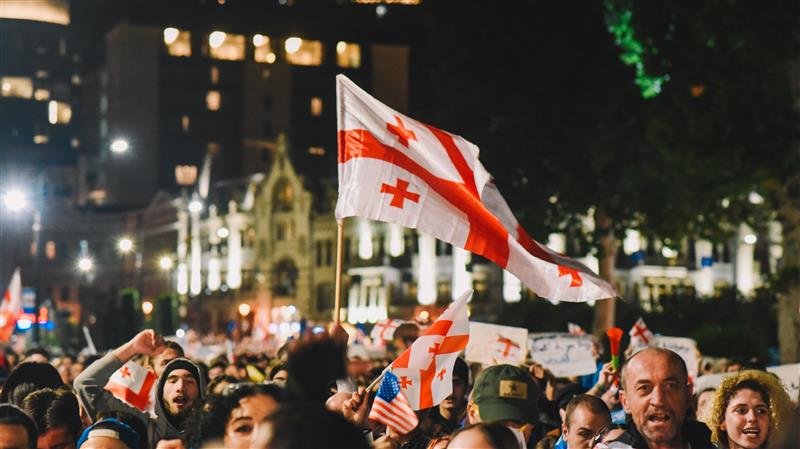Georgia: Journalistic Protections in the Context of Protest to be Considered at the Highest Level by the European Court of Human Rights
25 February 2025 – Tomorrow, the Grand Chamber of the European Court of Human Rights in Strasbourg will hear a case involving the treatment in Georgia of journalists covering a demonstration in front of the Georgian Parliament building. PEN International, English PEN, and PEN Georgia have been granted permission to intervene in the case, which will consider the scope of protections afforded to journalists and media workers in the context of political protest.
On 26 February 2025, the Grand Chamber of the European Court of Human Rights (ECtHR) will hear Tsaava and Others v. Georgia, regarding the allegedly excessive use of force by police in Georgia during the dispersal of a demonstration in front of the Parliament building in June 2019, and the contention that no effective criminal investigation was carried out. Four of the five applications concern the treatment of journalists and media workers in that demonstration.
PEN International, PEN Georgia, and English PEN – who have filed a third-party intervention in the case – said:
‘The case before the Grand Chamber reinforces the importance of the rights guaranteed by Article 10 of the European Convention on Human Rights (freedom of expression) in the context of political protest.
In the words of the Grand Chamber in previous cases, the press must be permitted to play its vital role as public watchdog. Yet the right to freedom of expression under Article 10 is rendered ineffective when there is impunity for harassment, intimidation, and violence against journalists. Our intervention seeks to remind the Court that media freedoms require particular protection in the context of reporting on matters in which there is a strong public interest – such as demonstrations and protests.
Our intervention urges the Court to confirm that State obligations to journalists in the context of covering protest are far reaching and go beyond the duty not to interfere. States must take the necessary measures to prevent and investigate conduct designed to restrict journalistic activity. Any interference with media freedoms when covering protest should receive the strictest scrutiny from the Court.
Regrettably, the Grand Chamber will hear the case against the backdrop of a serious deterioration in the environment for freedom of expression in Georgia, including through the adoption of an array of repressive legislation. Today, journalists continue to be subject to violent attacks and detention when reporting on political demonstrations. Impunity prevails.
This is a significant case for the Strasbourg Court and an opportunity for its Grand Chamber to revisit its caselaw on journalistic protections at a time when upholding those protections – in Georgia and beyond – could not be more crucial.’
Additional information
PEN International, English PEN, and PEN Georgia are represented before the Grand Chamber by Prof. Can Yeginsu and Dr. Naomi Hart. A copy of the intervenors’ written submission can be found here.
PEN International and PEN Georgia have documented how the rights to freedom of expression and peaceful assembly have seriously deteriorated in Georgia in recent months, including with the adoption of a repressive ‘foreign agents’ law in May 2024 and a ‘Family Values bill’ in September 2024 despite a national and international outcry.
On 28 October 2024, Prime Minister Irakli Kobakhidze announced that Georgia would pause its accession to the European Union until 2028, in response to a European Parliament resolution denouncing Georgia’s parliamentary elections on 26 October as having ‘numerous and serious electoral violations’, which ‘[could not] be considered as free and fair’. The resolution notably called for the elections to be re-run within a year under international supervision. Thousands of pro-EU protesters took to the streets in Tbilisi to oppose the prime minister’s announcement, with protests spreading across the country. Demonstrations continue to be violently dispersed by law enforcement officials, who stand accused of acts of torture and other ill-treatment against protesters. No one has been held accountable to date.
Note to editors:
For further details contact:
PEN International: Aurélia Dondo, Head of Europe and Central Asia: [email protected]
PEN Georgia: Khatuna Tskhadadze, President: [email protected]
English PEN: Cat Lucas, Head of Campaigns: [email protected]
For media queries, please contact Sabrina Tucci, PEN International Communications and Campaigns Manager, [email protected]




